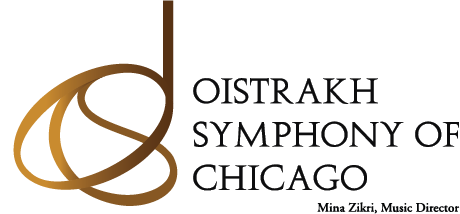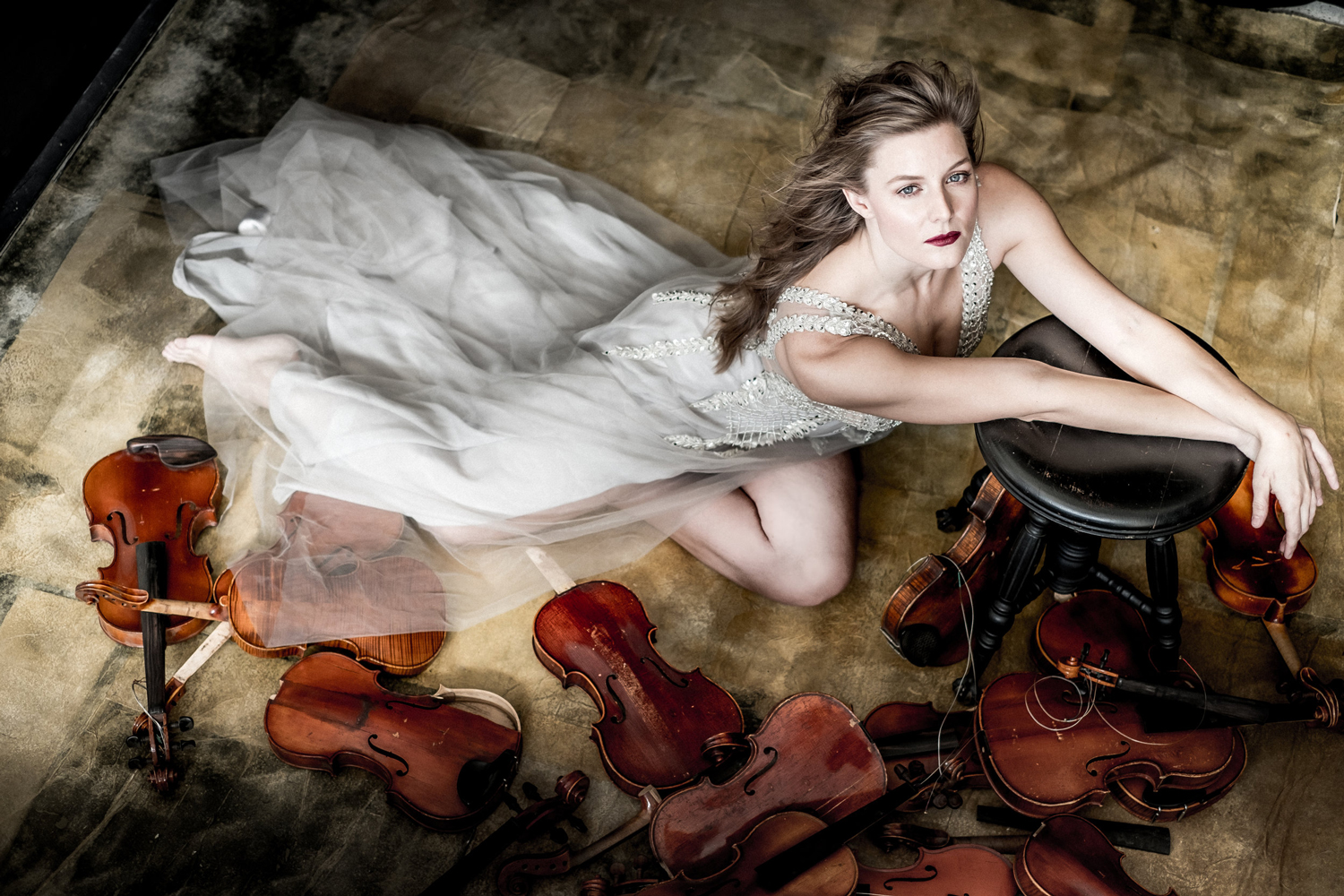Meet OSC: Violinist Rachelle Puccini
/Rachelle Puccini (Dario Acosta photography, Darioacosta.com)
“ It is very different from the typical concert or recital, where we must leave everything on the stage. When recording anything, whether audio or video, it is always difficult not to get overwhelmed in perfecting every detail. I like the idea of being as “natural” or “un-edited” as possible ...””
Violinist Rachelle Puccini's performances offer an expansive look into what it is to be an accomplished musician; she performs actively as a soloist, chamber musician, and as a member of the Oistrakh Symphony of Chicago. But that's only the beginning of her work as a performer, and in a larger sense, as an artist. Her audience also hears her in her recordings, and soon will see her in the film that she and Paul Hamilton are making together. Her site RachellePuccini.com is an exceptionally well-designed example of how an artist site can engage an audience, and her reflections on classical music past and future, the impact of musical instruments on performance, how to listen and how to learn are only some of the subjects where you encounter her careful and well-informed perspective.
INSIDE OSC asked Rachelle about just two of these subjects, at least for now — the first was about the film that she and Paul Hamilton are working on together, and what we learned is as interesting as it is informative. Our second question for Rachelle was inspired by the upcoming DePaul Concerto Festival for Young Performers, where young musicians have the opportunity to perform with The Oistrakh Symphony of Chicago. Here's what Rachelle told us:
Rachelle Puccini (Dario Acosta photography, Darioacosta.com)
“... this is one of the greatest abilities that music has, the capacity to communicate on levels we cannot articulate, nor that need to be articulated.”
INSIDE OSC: Your performance career includes a wide range of settings, from soloist to chamber to orchestra, and from recording studio to concert hall. But it also includes a very different kind of experience -- performance on film. You’re in the process of completing a film with pianist and film maker Paul Hamilton of the violin and piano work Fratres by Arvo Pärt, in which you are both the subject and performing artist. What inspired you and Paul to make this film? How would you compare the experience of a project like this to the other ways in which you perform music, both for you as a musician, and also for what you hope to share with your audience?
Rachelle Puccini: I have always been inspired by Pärt's music, and the piece Fratres has long been on my radar as something that I just had to learn! I was exposed to the music of Arvo Pärt as a very young adult, and I am grateful for the exposure because I really credit his music with being a kind of "gateway" to the music of living composers. It's really the reason why I have a long list of "living" works to be learned, including my latest project — learning and programming Philip Glass' Violin Concert No. 1. I find that the music of Pärt is innovative in the way we would expect music of the last fifty years to be, and yet it "listens" very well. I find it is relatable at an intrinsic level, and very intimate.
I have been so fortunate to come across Paul Hamilton. I feel collaborations where you can artistically trust in the other person wholeheartedly are a rare find, and so musically freeing. Paul does so much, and I originally came to him for help with some solo videos I was doing at the time, after being exposed to his film work — I had no idea he was a phenomenal pianist, and a great collaborator! We've been together ever since. Paul also has a strong attachment to the music of Pärt, so it was a natural choice as the subject of our film.
Working as both the recording artist and visual subject of a film has been interesting. It is very different from the typical concert or recital, where we must leave everything on the stage. When recording anything, whether audio or video, it is always difficult not to get overwhelmed in perfecting every detail. I like the idea of being as "natural" or "un-edited" as possible, and Paul and I have really stayed true to that during this whole process. But emotionally that has been challenging, to be so exposed and vulnerable as an artist and a person. In a world where we over-filter everything, and where modern technology leads us to believe that our recording artists perform with god-like prowess, it's tough not to succumb to the option of "perfection". It's been an obstacle for me to overcome, and the same reason I waited until later in my life to put out content. I had to realize that my ideal is constantly changing — and that's the beauty of music, that there is always more. But one day I woke up and said, "If not now, when?" It will never be perfect, but that doesn't mean it isn't going to be great or effective. So, here we are!
Right now, I feel like the film tells its own story, but really my hope is that it allows the listener to relate with their own story — to find themselves in the music, to use their own memories as a source. In my opinion, this is one of the greatest abilities that music has, the capacity to communicate on levels we cannot articulate, nor that need to be articulated. By combining the effective music of Fratres with film, my hope for the audience is that it further encourages them into the music, into their own inner worlds.
Rachelle Puccini (Dario Acosta photography, Darioacosta.com)
“I think as musicians we all find our way to the stage for a variety of reasons, but for me there has always been this pull, fueled by my love and my connection with music. It’s a constant voice in my heart ...”
INSIDE OSC: With the DePaul Concerto Festival for Young Performers coming up, it would be very interesting to hear about your own experiences performing when you were a young music student. Can you tell us about any of those performances, and how you see that opportunity now?
Rachelle Puccini: The first time I appeared as a soloist with orchestra stands out in particular, especially as we head into the DePaul Concerto Festival for Young Performers. I was maybe fifteen, and the whole event — from preparation to performance — is still a whirlwind in my memory. But what sticks with me the most is how much I loved to play my violin. Being there on stage, standing in front while the orchestra sat behind me, felt strangely lonely — to hear my "voice" standing out among the others, and the intimidating feeling of the gaze of what seemed to me an enormous hall on me. But when it was over, all I wanted was to get out there again. The adrenaline of it, the thrill, the vulnerability, it was terrifying and I was hooked! I think as musicians we all find our way to the stage for a variety of reasons, but for me there has always been this pull, fueled by my love and my connection with music. It's a constant voice in my heart that sometimes, despite all reason and obstacles, drags me onward, back on to that stage. It's a belief that I have something to give, and I have to get it out.
I'd like to be able to say that in the solo performances since that first appearance I have grown out of those feelings of vulnerability and terror, but I haven't. I think that's what makes what we do as soloists so special. We have to get to a place where we can convey our innermost self through music, all with technical efficiencey, while enduring all of those feeling that are such a part of being human. It's not that we are fearless, we are just brave.
Make sure to come out and see many brave young musicians when the Oistrakh Symphony of Chicago performs on Sunday, February 17th at the DePaul Concerto Festival for Young Performers!
_____________________________
You can find out more about Rachelle Puccini at RachellePuccini.com, or by following her on Facebook Instagram, and Twitter.




